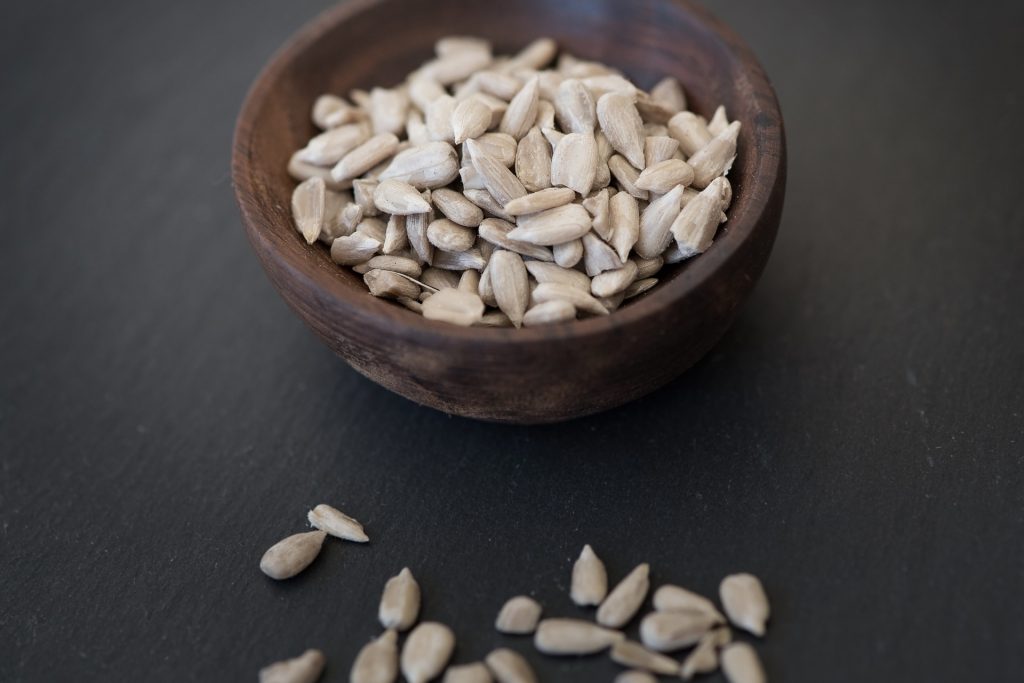Vitamin E is a fat-soluble vitamin and antioxidant that protects red blood cells, fatty acids, and vitamins A and C from damage. Many studies show a lower risk for heart disease, cancer, and several other diseases when consuming a diet with lots of fruits and vegetables—rich in antioxidant vitamins and other beneficial compounds. Antioxidant supplements have not been shown to have the same benefits as foods rich in antioxidants.

How much do I need?
- 7 milligrams per day for children 4-8 years old
- 11 milligrams for children 9-13 years old
- 15 milligrams per day for anyone over 14 years old
For recommendations for infants, children, or breastfeeding women, check out the chart in CSU Extension’s Fact Sheet: Fat-Soluble Vitamins: A, D, E, and K
Food sources
Vitamin E is naturally found in many foods and occasionally added to some fortified foods such as breakfast cereals. The best natural sources of vitamin E are vegetable oils such as wheat germ, sunflower, safflower, and corn. Other great sources include seeds and nuts such as peanuts, hazelnuts, almonds, and sunflower seeds.
What happens if I don’t get enough?
Generally, vitamin E deficiency is not common, except in premature infants and in those unable to absorb or digest fats. Inadequate amounts of vitamin E can lead to weakened immune systems and possible nerve and muscle damage.
Can I get too much?
Vitamin E is fat-soluble, which means it can be stored in the body for long periods of time. Toxicity doesn’t usually occur when vitamin E comes from food, but extra caution should be used with supplements. Large dosages of vitamin E from supplements does not result in any added benefits and can pose risks for those taking blood thinners.
Did You Know?
Adults can get their daily requirement of vitamin E by eating two ounces of sunflower seeds (about 1/4 cup).
- Consider these ideas for including sunflower seeds in your diet:
- Add them to any salad for a crunch.
- Nibble on them for a light snack between meals.
- Top bread or fruit with sunflower butter for a delicious treat.
- Add them to homemade or store-bought granola.
- Add them to your yogurt as a part of your breakfast.


